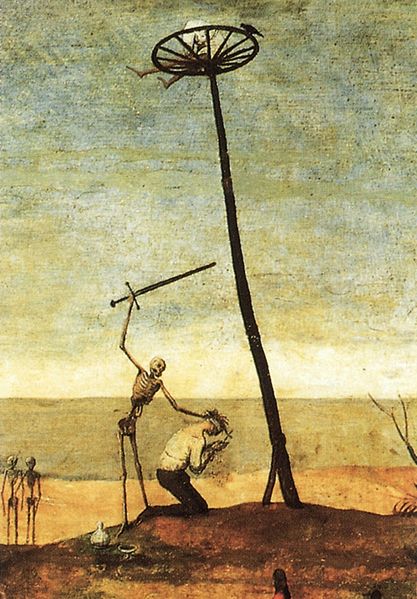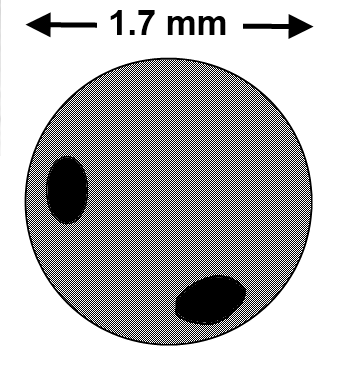|
The Executioner (Kisyov Novel)
''The Executioner'' is a post modern novel by Bulgarian novelist Stefan Kisyov, about the killing of Bulgarian dissident writer Georgi Markov. It was published in 2003 and is the winner of the Vick Foundation's "Best Novel of 2004". Style The style of the book is written part fictionally, part phantasmagorically and uses existing facts, regardless of whether they are political, public or artistic by nature. It relies on vivid details, good dialogue, and on the effect of expectations going wrong, with a mixture of rough naturalism and ironical and metaphysical generalizations. The novel is written in the form of a confession, the confession of an executioner turned into a victim, and a victim, turned into an executioner. Editions * Stefan Kisjov, ''Kat'', Překl. Naďa Aljanabiová, Brno, Barrister & Principal, 2012. * Stefan Kissiov, ''Ekzekutor'', Prevela sa bugarskog Asja Tihinova-Jovanović, Podgorica, Oktoih, 2012, 91 pages. [...More Info...] [...Related Items...] OR: [Wikipedia] [Google] [Baidu] |
Executioner2003
An executioner, also known as a hangman or headsman, is an official who executes a sentence of capital punishment on a legally condemned person. Scope and job The executioner was usually presented with a warrant authorising or ordering him to ''execute'' the sentence. The warrant protects the executioner from the charge of murder. Common terms for executioners derived from forms of capital punishment—though they often also performed other physical punishments—include hangman (hanging) and headsman (beheading). In the military, the role of executioner was performed by a soldier, such as the ''provost''. A common stereotype of an executioner is a hooded medieval or absolutist executioner. Symbolic or real, executioners were rarely hooded, and not robed in all black; hoods were only used if an executioner's identity and anonymity were to be preserved from the public. As Hilary Mantel noted in her 2018 Reith Lectures, "Why would an executioner wear a mask? Everybody kn ... [...More Info...] [...Related Items...] OR: [Wikipedia] [Google] [Baidu] |
Stefan Kisyov
Stefan Kisyov is a novelist, journalist, playwright and short story writer. Kisyov was born in Stara Zagora in 1963. He studied at Sofia and Plovdiv universities, and also at the Sorbonne in Paris. He has worked as an electrician at a tram depot, locksmith at a chemical factory, administrator at a Black Sea hotel, stage hand at the Stara Zagora Opera, waiter, newspaper journalist and in television. He lived in France and Switzerland. He is the author of books such as ''Jukebox'', ''Not a Thing Anywhere'', ''Don't Wake the Somnambulist'', ''Your Name is Woman'' and ''A Waiter in the Boyana Residence''. His award-winning novel, '' The Executioner'' was published in 2003. Stefan Kisyov lives in Havana. Works Stefan Kisyov's novels * ''Juke-box'' (1996) * ''Nothing Anywhere'' (2000) * '' Don't Wake Up the Sleepwalker'' (2000) * '' The Executioner'', winner of the Vick Foundation The Vick Foundation was established in February 2004 to award an annual prize for best Bulgarian ... [...More Info...] [...Related Items...] OR: [Wikipedia] [Google] [Baidu] |
Bulgaria
Bulgaria (; bg, България, Bǎlgariya), officially the Republic of Bulgaria,, ) is a country in Southeast Europe. It is situated on the eastern flank of the Balkans, and is bordered by Romania to the north, Serbia and North Macedonia to the west, Greece and Turkey to the south, and the Black Sea to the east. Bulgaria covers a territory of , and is the sixteenth-largest country in Europe. Sofia is the nation's capital and largest city; other major cities are Plovdiv, Varna and Burgas. One of the earliest societies in the lands of modern-day Bulgaria was the Neolithic Karanovo culture, which dates back to 6,500 BC. In the 6th to 3rd century BC the region was a battleground for ancient Thracians, Persians, Celts and Macedonians; stability came when the Roman Empire conquered the region in AD 45. After the Roman state splintered, tribal invasions in the region resumed. Around the 6th century, these territories were settled by the early Slavs. The Bulgars, led by Asp ... [...More Info...] [...Related Items...] OR: [Wikipedia] [Google] [Baidu] |
Bulgarian Language
Bulgarian (, ; bg, label=none, български, bălgarski, ) is an Eastern South Slavic language spoken in Southeastern Europe, primarily in Bulgaria. It is the language of the Bulgarians. Along with the closely related Macedonian language (collectively forming the East South Slavic languages), it is a member of the Balkan sprachbund and South Slavic dialect continuum of the Indo-European language family. The two languages have several characteristics that set them apart from all other Slavic languages, including the elimination of case declension, the development of a suffixed definite article, and the lack of a verb infinitive. They retain and have further developed the Proto-Slavic verb system (albeit analytically). One such major development is the innovation of evidential verb forms to encode for the source of information: witnessed, inferred, or reported. It is the official language of Bulgaria, and since 2007 has been among the official languages of the Eur ... [...More Info...] [...Related Items...] OR: [Wikipedia] [Google] [Baidu] |
Post Modern
Postmodernism is an intellectual stance or mode of discourseNuyen, A.T., 1992. The Role of Rhetorical Devices in Postmodernist Discourse. Philosophy & Rhetoric, pp.183–194. characterized by skepticism toward the " grand narratives" of modernism, opposition to epistemic certainty or stability of meaning, and emphasis on ideology as a means of maintaining political power. Claims to objective fact are dismissed as naïve realism, with attention drawn to the conditional nature of knowledge claims within particular historical, political, and cultural discourses. The postmodern outlook is characterized by self-referentiality, epistemological relativism, moral relativism, pluralism, irony, irreverence, and eclecticism; it rejects the "universal validity" of binary oppositions, stable identity, hierarchy, and categorization. Initially emerging from a mode of literary criticism, postmodernism developed in the mid-twentieth century as a rejection of modernism and has been observed ... [...More Info...] [...Related Items...] OR: [Wikipedia] [Google] [Baidu] |
Georgi Markov
Georgi Ivanov Markov ( bg, Георги Иванов Марков ; 1 March 1929 – 11 September 1978) was a Bulgarian dissident writer. He originally worked as a novelist, screenwriter and playwright in his native country, the People's Republic of Bulgaria, until his defection in 1978. After relocating to London, he worked as a broadcaster and journalist for the BBC World Service, the US-funded Radio Free Europe and West Germany's Deutsche Welle. Markov used such forums to conduct a campaign of sarcastic criticism against the incumbent Bulgarian regime, which, according to his wife at the time he died, eventually became "vitriolic" and included "really smearing mud on the people in the inner circles." Markov was assassinated on a London street via a micro-engineered pellet that might have contained ricin. Contemporary newspaper accounts reported that he had been stabbed in the leg with an umbrella delivering a poisoned pellet, wielded by someone associated with the Bulgaria ... [...More Info...] [...Related Items...] OR: [Wikipedia] [Google] [Baidu] |
Vick Foundation
The Vick Foundation was established in February 2004 to award an annual prize for best Bulgarian language, Bulgarian novel. There is also a competition for the most popular short-listed book, based on votes cast by the general public. In 2008, the award will celebrate its 5th anniversary, and the foundation is on the path to becoming an institution in Bulgaria. History Vick's initiative was acclaimed by those who saw in the prize a new opportunity for the Bulgarian literature after almost 15 years of standstill. A permanent committee, which includes Stefan Danailov, the current Minister of Culture of Bulgaria, elects а jury. Other members in the committee are Raymond Wagenstein, Boyan Biolchev, Nedyalko Yordanov, Hristo Droumev and Ivan Granitski. The jury changes each year and they select a short list of six Bulgarian novels from which the winner is chosen. One of the member making up the 2008 jury is Meglena Kuneva, the current European commissioner in Bulgaria. The aim of ... [...More Info...] [...Related Items...] OR: [Wikipedia] [Google] [Baidu] |
Bulgarian Literature
Bulgarian literature is literature written by Bulgarians or residents of Bulgaria, or written in the Bulgarian language; usually the latter is the defining feature. Bulgarian literature can be said to be one of the oldest among the Slavic peoples, having its roots during the late 9th century and the times of Simeon I of the First Bulgarian Empire. Notable modern Bulgarian works of literature are '' The Peach Thief'' by Emiliyan Stanev, ''September'' by Geo Milev, ''Under The Yoke'' by Ivan Vazov, ''The Windmill'' by Elin Pelin, and ''Depths'' by Dora Gabe. The book ''Wild Stories'' (Divi Razkazi/Диви разкази) by Nikolay Haytov is included in the UNESCO Historical Collection. Middle Ages With the Bulgarian Empire welcoming the disciples of Cyril and Methodius after they were expelled from Great Moravia, the country became a centre of rich literary activity during what is known as the Golden Age of medieval Bulgarian culture. In the late 9th, the 10th and early 11t ... [...More Info...] [...Related Items...] OR: [Wikipedia] [Google] [Baidu] |
2003 Bulgarian Novels
3 (three) is a number, numeral and digit. It is the natural number following 2 and preceding 4, and is the smallest odd prime number and the only prime preceding a square number. It has religious or cultural significance in many societies. Evolution of the Arabic digit The use of three lines to denote the number 3 occurred in many writing systems, including some (like Roman and Chinese numerals) that are still in use. That was also the original representation of 3 in the Brahmic (Indian) numerical notation, its earliest forms aligned vertically. However, during the Gupta Empire the sign was modified by the addition of a curve on each line. The Nāgarī script rotated the lines clockwise, so they appeared horizontally, and ended each line with a short downward stroke on the right. In cursive script, the three strokes were eventually connected to form a glyph resembling a with an additional stroke at the bottom: ३. The Indian digits spread to the Caliphate in the 9th ... [...More Info...] [...Related Items...] OR: [Wikipedia] [Google] [Baidu] |
Crime Novels
Crime fiction, detective story, murder mystery, mystery novel, and police novel are terms used to describe narratives that centre on criminal acts and especially on the investigation, either by an amateur or a professional detective, of a crime, often a murder. It is usually distinguished from mainstream fiction and other genres such as historical fiction or science fiction, but the boundaries are indistinct. Crime fiction has multiple subgenres, including detective fiction (such as the whodunit), courtroom drama, hard-boiled fiction, and legal thrillers. Most crime drama focuses on crime investigation and does not feature the courtroom. Suspense and mystery are key elements that are nearly ubiquitous to the genre. History The ''One Thousand and One Nights'' (''Arabian Nights'') contains the earliest known examples of crime fiction. One example of a story of this genre is the medieval Arabic tale of "The Three Apples", one of the tales narrated by Scheherazade in the ''Arabian ... [...More Info...] [...Related Items...] OR: [Wikipedia] [Google] [Baidu] |






